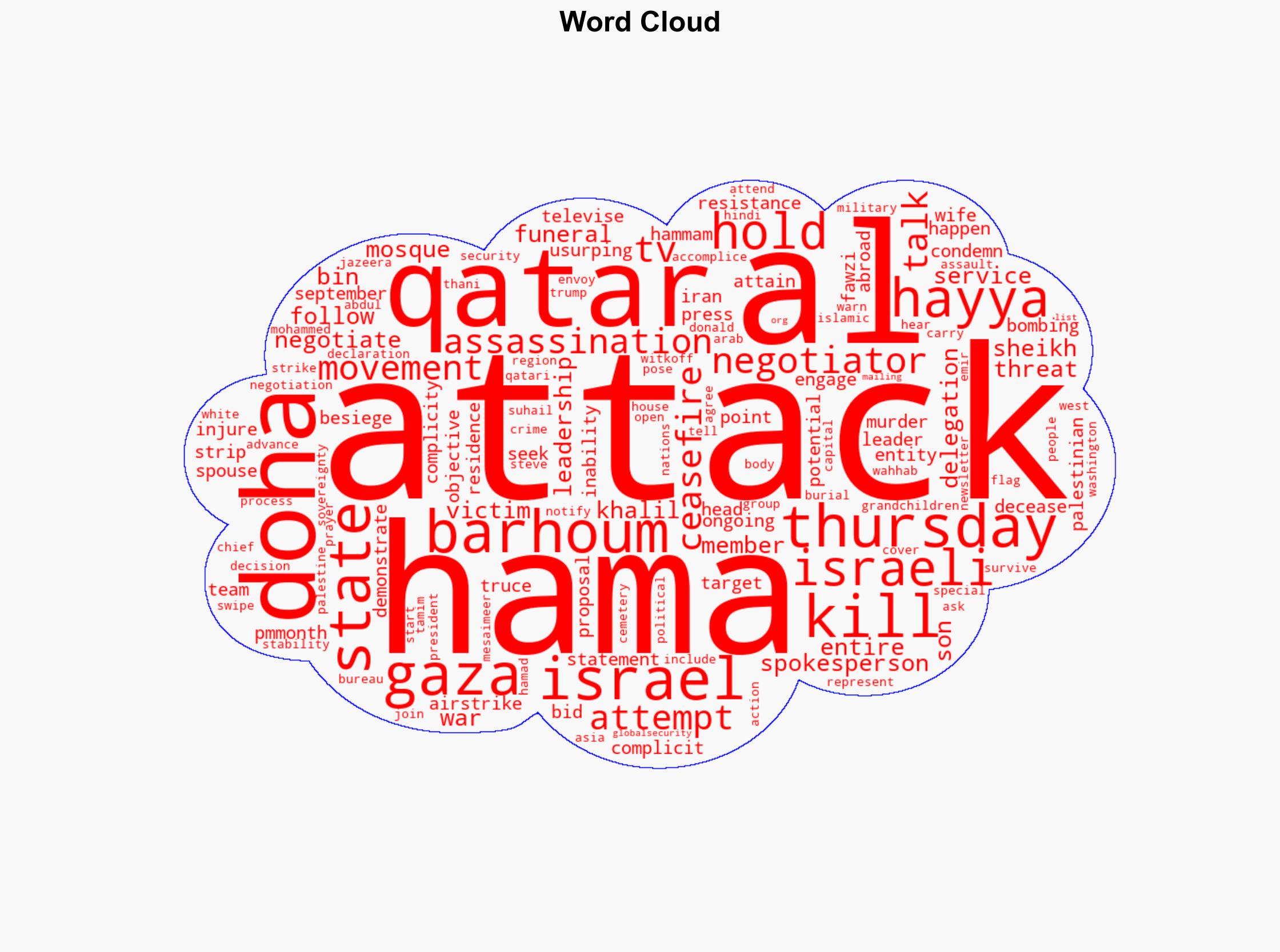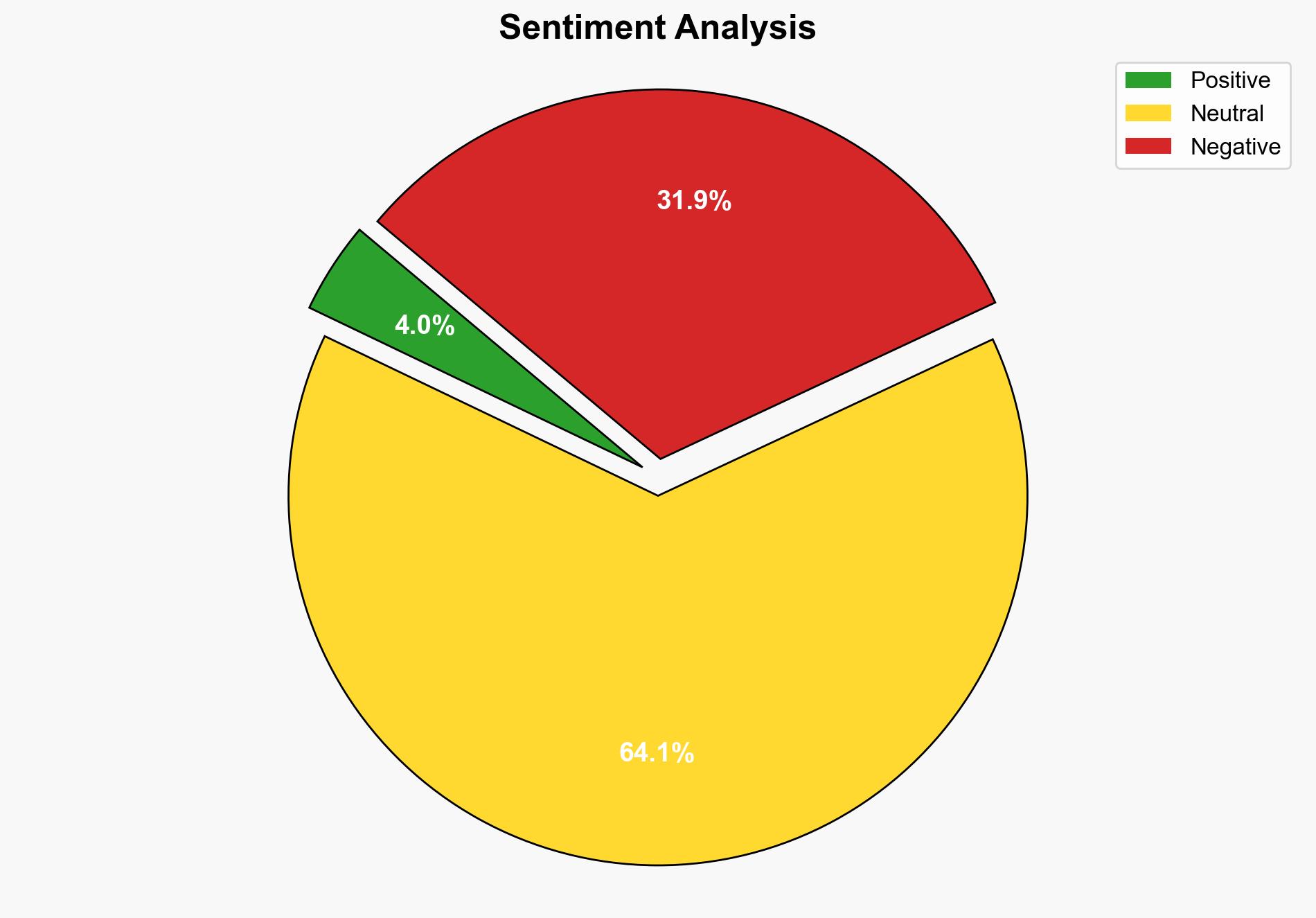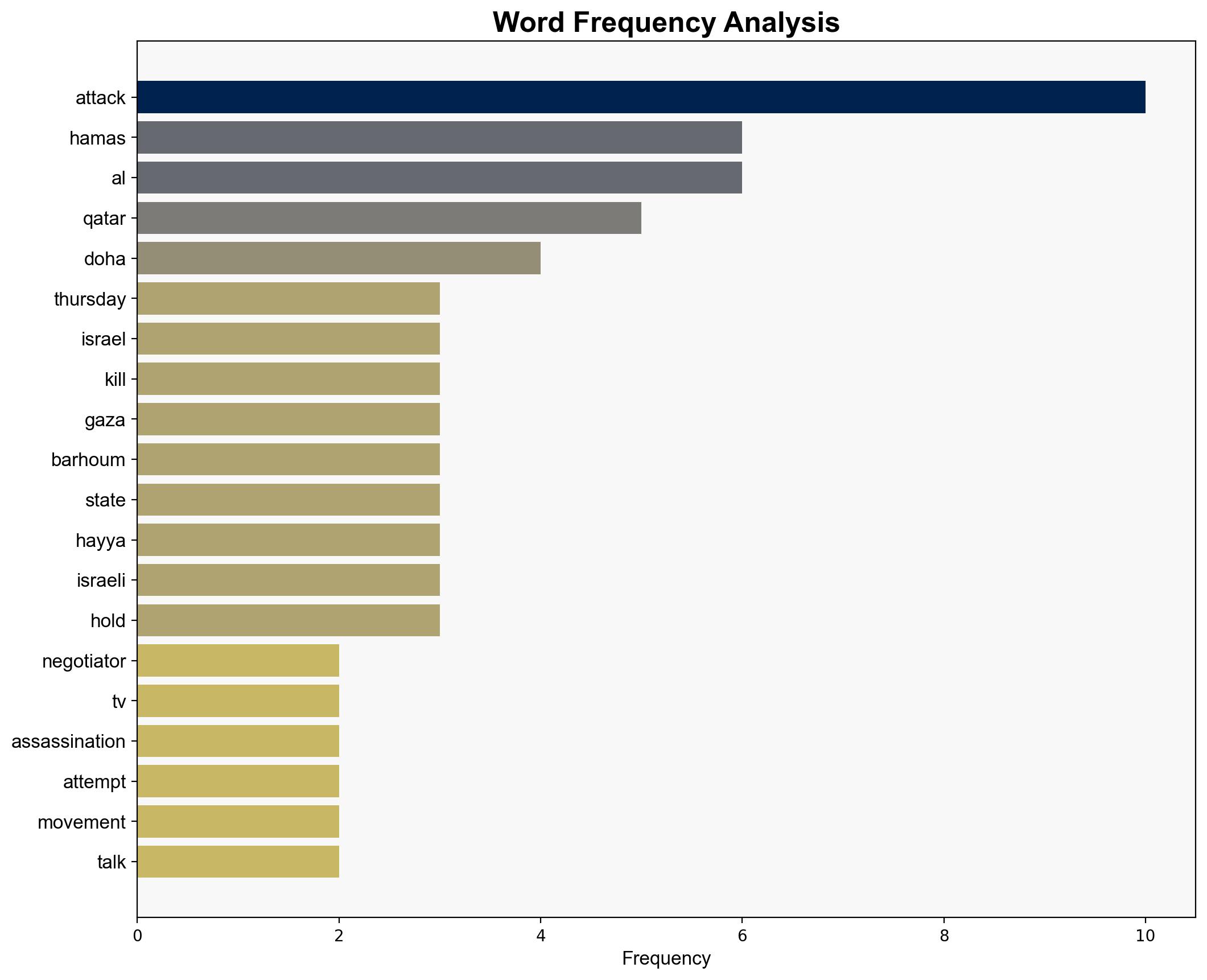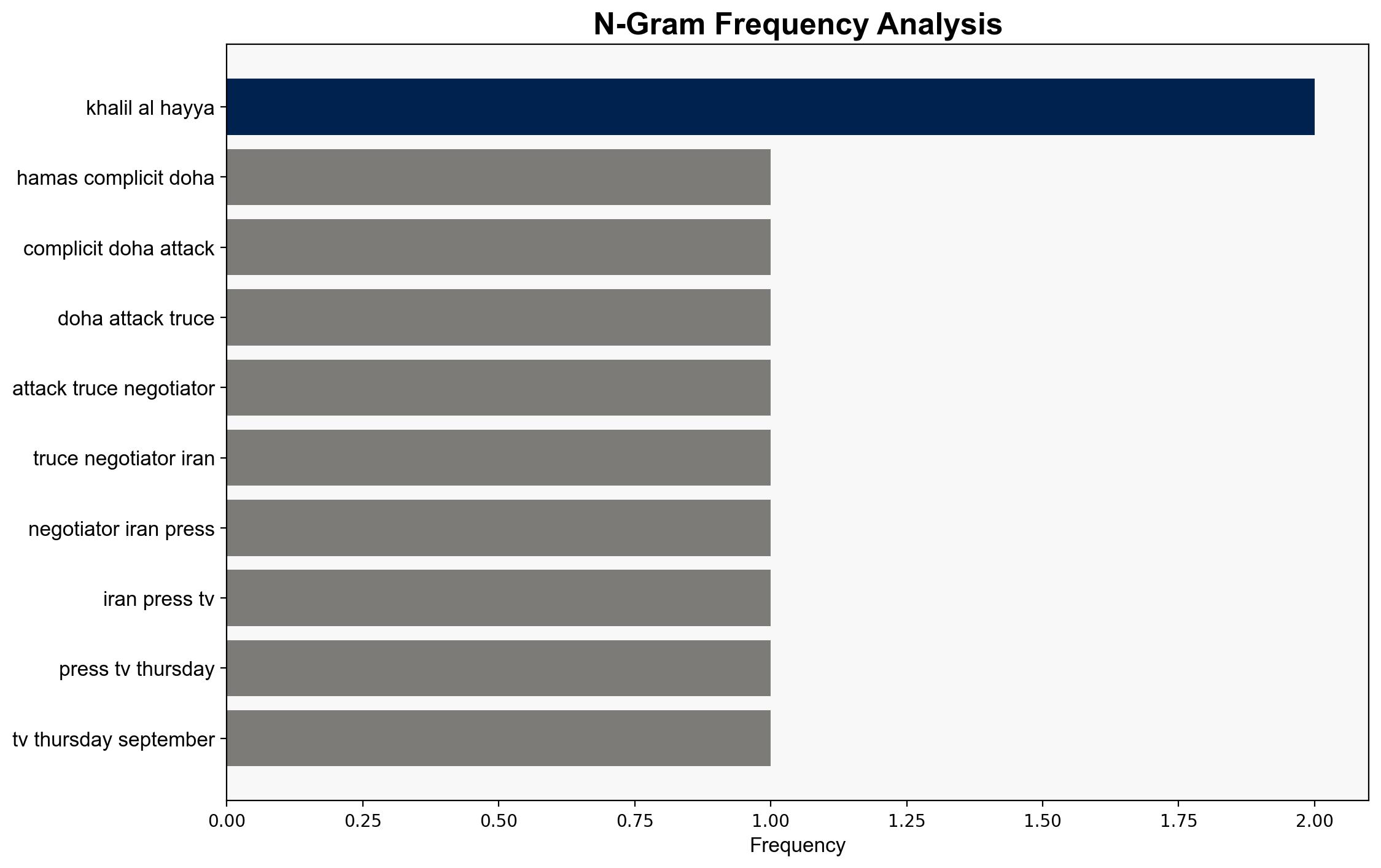Hamas US complicit in Doha attack on truce negotiators – Globalsecurity.org
Published on: 2025-09-12
Intelligence Report: Hamas US complicit in Doha attack on truce negotiators – Globalsecurity.org
1. BLUF (Bottom Line Up Front)
The most supported hypothesis is that the attack on Hamas negotiators in Doha was primarily orchestrated by Israel, with potential foreknowledge by the US. This conclusion is drawn from the structured analysis of available intelligence, which indicates a pattern of Israeli strategic interests in disrupting Hamas negotiations. The confidence level is moderate due to the complexity and potential biases in the source material. Recommended action includes diplomatic engagement with Qatar and regional allies to de-escalate tensions and gather further intelligence.
2. Competing Hypotheses
1. **Hypothesis A**: The attack was an Israeli operation aimed at disrupting Hamas negotiations, with the US having prior knowledge but not direct involvement.
2. **Hypothesis B**: The attack was a joint operation between Israel and the US, with both parties actively complicit in targeting Hamas negotiators to undermine the ceasefire talks.
Using ACH 2.0, Hypothesis A is better supported due to historical precedence of Israeli unilateral actions against Hamas and the lack of concrete evidence directly implicating US operational involvement.
3. Key Assumptions and Red Flags
– **Assumptions**: It is assumed that Israel has the capability and intent to conduct such operations independently. The US’s strategic interest in the region is assumed to align with Israel’s actions.
– **Red Flags**: The source’s potential bias, given the political nature of the entities involved, and the lack of independent verification of claims made in the report.
– **Blind Spots**: Limited information on Qatar’s internal security measures and their response to the attack.
4. Implications and Strategic Risks
The attack could lead to increased regional instability, affecting diplomatic relations between Qatar, Israel, and the US. It may also embolden other non-state actors in the region, potentially escalating into broader conflicts. Economic impacts could arise from disrupted negotiations affecting aid and trade agreements.
5. Recommendations and Outlook
- Engage in diplomatic dialogue with Qatar to ensure regional stability and gather more intelligence.
- Monitor Israeli and US communications for further insights into their strategic intentions.
- Scenario Projections:
- Best Case: Successful de-escalation through diplomatic channels, leading to resumed negotiations.
- Worst Case: Escalation into broader regional conflict involving multiple state and non-state actors.
- Most Likely: Continued tensions with sporadic violence, but no full-scale escalation.
6. Key Individuals and Entities
– Khalil al-Hayya
– Fawzi Barhoum
– Suhail al-Hindi
– Sheikh Tamim bin Hamad al-Thani
– Donald Trump
– Steve Witkoff
7. Thematic Tags
national security threats, counter-terrorism, regional focus, geopolitical strategy




